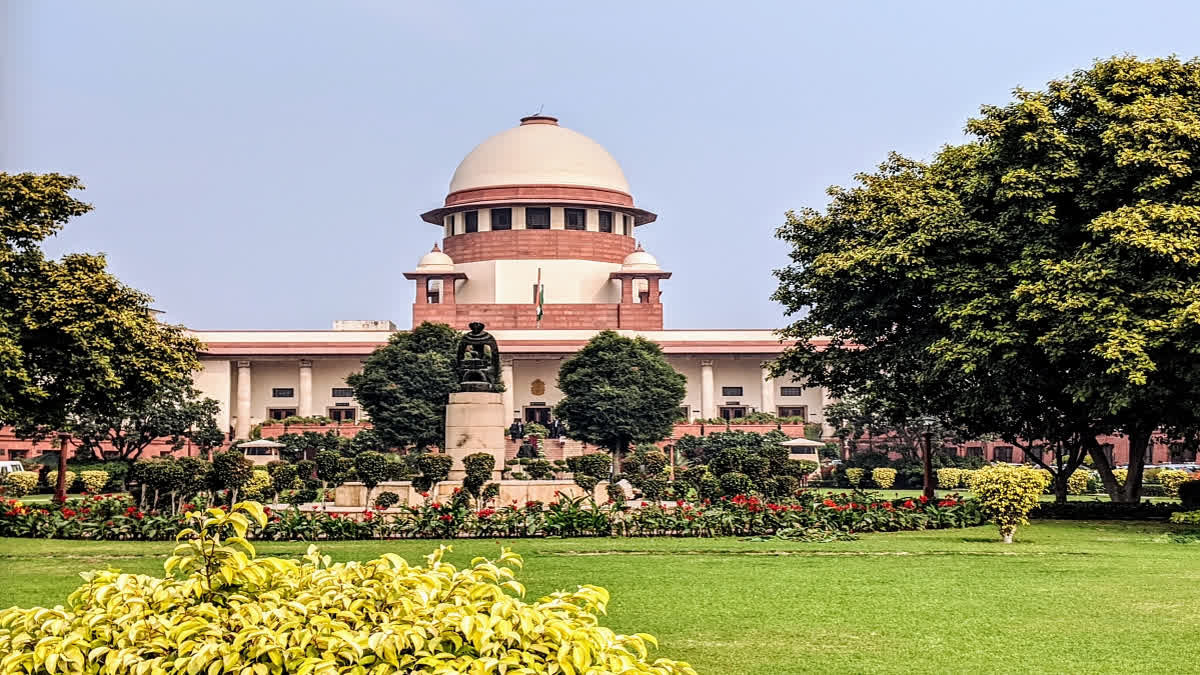New Delhi:The Supreme Court on Wednesday said the existence of the forest is necessary for the protection of tigers and human greed has led to the devastation of one of the most celebrated abodes of tigers -- the Corbett tiger reserve in Uttarakhand.
The top court minced no words in criticising the illegal felling of nearly 6,000 trees to construct buildings apparently for "eco-tourism" at the tiger reserve, saying this is a classic case that shows "how the politicians and the bureaucrats have thrown the public trust doctrine in the dustbin".
The apex court started the verdict with a quote from the epic Mahabharata, which means that a forest protects the tiger and the tiger protects the forest.
A three-judge bench led by Justice B R Gavai said former Uttarakhand Forest Minister and Congress leader Harak Singh Rawat and ex-Divisional Forest Officer (DFO) Kishan Chand considered them to be the law unto themselves and "they have, in blatant disregard of the law (forest and wildlife conservation) and for commercial purposes, indulged in the illicit felling of trees on a mass-scale to construct buildings on the pretext of promotion of tourism". The bench indicated that there may be others also involved.
The bench, also comprising Justices Prashant Kumar Mishra and Sandeep Mehta, said: "We are amazed at the audacity of the then Forest Minister and DFO in giving a total go-bye to the statutory provisions…. This is a classic case that shows how the politicians and the bureaucrats have thrown the public trust doctrine in the dustbin".
The bench also directed the Environment Ministry to form a specialised committee to study and recommend whether tiger safaris should be permitted in the buffer or fringe areas of a tiger reserve.
The top court expressed concern at the mushrooming growth of resorts within the close proximity of the protected areas and uncontrolled activities therein, including sound pollution, are capable of causing great harm to the ecosystem. "We are of the considered view that the States would be required to take steps for the identification and effective implementation of active restoration measures that are localised to the particular ecosystem that was damaged. The focus has to be on restoration of the ecosystem as close and similar as possible to the specific one that was damaged," said the bench.
The bench said no doubt that the CBI is investigating the issue as to who is responsible for the same. "However, the investigation by the CBI would only lead to finding out the culprits who are responsible for such huge devastation. The law will take its own course," it said, directing the central agency to submit a report of its investigation in the next three months.
"We are of the considered view that the State cannot run away from its responsibilities to restore the damage done to the forest. The State, apart from preventing such acts in the future, should take immediate steps for restoration of the damage already done; undertake an exercise for determining the valuation of the damage done and recover it from the persons found responsible for causing such a damage," said Justice Gavai, who authored the 159-page judgment on behalf of the bench.
Justice Gavai said the presence of tigers in the forests is an indicator of the well-being of the ecosystem and unless steps are taken for the protection of tigers, the ecosystem which revolves around tigers cannot be protected. "The events like illegal constructions and illicit felling of trees on a rampant scale like the one that happened in the Corbett National Park cannot be ignored," said Justice Gavai.
